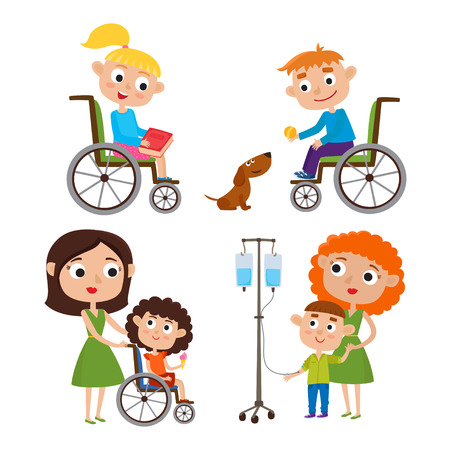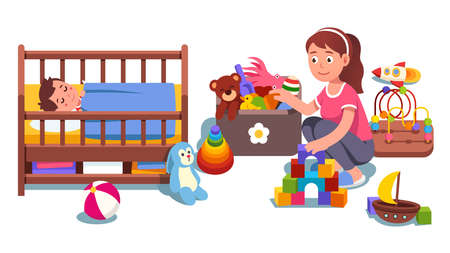Understanding Early Intervention in Speech Therapy
Early intervention is a term you might hear often if you’re concerned about your child’s speech and language development. In the context of speech therapy, early intervention refers to providing support and services to children as soon as possible—often from birth up to age three—if they show signs of communication or developmental delays. This approach is especially important in the United States, where there are dedicated programs and legal guidelines supporting early help for young children.
What Is Early Intervention?
Early intervention means identifying and addressing developmental needs before they become bigger challenges. When it comes to speech therapy, this includes helping children who have trouble with speaking, understanding language, making sounds, or social communication. The goal is to give kids the best start possible by boosting their skills during the most critical period of brain development.
Definition in U.S. Context
In the United States, early intervention is not just a general concept—it’s a federally supported program under the Individuals with Disabilities Education Act (IDEA), Part C. Each state has its own system to provide services for infants and toddlers with developmental delays or disabilities. Services may include speech therapy, physical therapy, occupational therapy, and more, all coordinated through an Individualized Family Service Plan (IFSP).
How Early Intervention Relates to Child Development
Speech and language skills are closely tied to a child’s overall growth. Early intervention in speech therapy can help children develop:
| Area of Development | How Speech Therapy Helps |
|---|---|
| Communication Skills | Improves ability to express needs, wants, and feelings |
| Social Interaction | Builds confidence in playing and talking with peers |
| Cognitive Growth | Supports learning by understanding words and instructions |
| Emotional Wellbeing | Reduces frustration related to communication challenges |
The earlier a child receives help, the greater the chances of closing gaps in development. In American culture, families are encouraged to seek support as soon as concerns arise—whether through pediatricians, local school districts, or state-run programs—so that children have every opportunity to thrive both at home and in preschool settings.
2. The Importance of Early Detection and Referral
Why Early Detection Matters
Early detection of speech and language delays is crucial for a child’s development. When parents, caregivers, or teachers notice potential issues early on, children have a much better chance of improving their communication skills with the right support. Early intervention can help kids catch up to their peers, boost their confidence, and make learning easier as they grow.
Common Signs of Speech and Language Delays
Recognizing the early signs can make all the difference. Here are some key milestones to watch for at different ages:
| Age | Speech/Language Milestones | Possible Concerns |
|---|---|---|
| 12 months | Babbles, says basic words like “mama” or “dada” | No babbling or single words |
| 18-24 months | Says simple words, follows basic directions | Less than 20 words by 18 months; does not follow directions |
| 2-3 years | Puts two words together (“more juice”), asks simple questions | Difficult to understand; few word combinations |
| 3-4 years | Tells stories, speaks in sentences, understood by strangers most of the time | Hard to understand; limited vocabulary; doesn’t use sentences |
Resources for Screening and Assessment in the U.S.
If you’re concerned about your child’s speech or language development, there are many resources available to American families:
- Pediatricians: Your child’s doctor can screen for delays and refer you to specialists if needed.
- Early Intervention Programs: Every state offers free or low-cost services for children under age 3 who qualify. Find your local program through the CDC’s directory of state programs.
- Public Schools: Children ages 3 and older may be eligible for speech therapy through their local school district—even before kindergarten.
- Speech-Language Pathologists (SLPs): These professionals assess and treat speech and language issues. You can find certified SLPs through the American Speech-Language-Hearing Association (ASHA).
- Online Screeners: Many organizations offer free online checklists and tools to help parents track developmental milestones.
The Power of Acting Early
The sooner a child gets help, the better their chances of success. If you notice any warning signs, don’t wait—talk to your pediatrician or reach out to an early intervention program in your area. Early action opens doors to support and brighter futures for children with speech and language delays.

3. Benefits of Early Speech Therapy for Children
Why Early Speech Therapy Matters
Getting help early in speech therapy can make a big difference for young children. Early intervention gives kids the support they need at a time when their brains are growing fast and learning new skills is easier. Starting therapy early can lead to better communication, stronger school readiness, and improved social-emotional growth.
Key Positive Outcomes of Early Intervention
| Area of Development | Positive Outcomes |
|---|---|
| Communication Skills | Children learn to express themselves clearly, understand others better, and use words and sentences more effectively. |
| Academic Readiness | Improved speech helps with reading, writing, and following instructions in school, making it easier for kids to succeed in the classroom. |
| Social-Emotional Development | Better communication boosts confidence, helps children make friends, and supports emotional well-being. |
Improved Communication Skills
When children start speech therapy early, they can develop stronger language abilities. This means they can ask questions, share their thoughts, and connect with others. It also helps them avoid frustration that comes from not being understood.
Boosted Academic Readiness
Early speech therapy prepares kids for school by improving their listening and speaking skills. They find it easier to follow directions from teachers, participate in classroom activities, and begin reading and writing with greater confidence.
Enhanced Social-Emotional Growth
Kids who communicate well feel more confident and are more likely to join group activities or make friends. They learn important social skills like taking turns in conversation and understanding how others feel, which is essential for building strong relationships.
4. Implementation Strategies and Family Involvement
Evidence-Based Intervention Approaches
Early intervention in speech therapy relies on proven, evidence-based strategies to help children develop essential communication skills. Therapists in the United States often use a combination of approaches tailored to each child’s needs. Here are some common methods:
| Approach | Description | Example Activities |
|---|---|---|
| Play-Based Therapy | Uses play as a natural context for learning language and social skills. | Pretend play, using toys to model words and sentences. |
| Modeling and Recasting | Adults model correct language forms and gently correct errors during conversation. | If a child says “dog run,” the therapist responds, “Yes, the dog is running!” |
| Parent-Implemented Intervention | Trains parents to use strategies at home during daily routines. | Parents practice naming objects during mealtime or bath time. |
| Augmentative and Alternative Communication (AAC) | Introduces tools or devices for children with significant speech delays. | Pictorial communication boards, basic speech-generating devices. |
The Role of Family Engagement
Family involvement is a key factor in the success of early speech therapy. In the U.S., therapists work closely with families to create a supportive environment for children both in and out of therapy sessions. Here’s how families are involved:
- Participating in Sessions: Parents or caregivers often join therapy sessions to observe techniques and learn strategies they can use at home.
- Setting Goals Together: Therapists collaborate with families to set meaningful and achievable goals based on the child’s daily life and interests.
- Home Practice: Families are encouraged to practice skills through fun, everyday activities like reading books, singing songs, or playing games.
- Cultural Sensitivity: Speech-language pathologists consider each family’s cultural background and values when designing intervention plans.
Common Practices in U.S. Speech Therapy Settings
Speech therapy services for young children in the U.S. typically take place in a variety of settings, including private clinics, public schools, and community centers. Early intervention programs often follow these steps:
- Assessment: A speech-language pathologist evaluates the childs communication skills through observation, standardized tests, and input from caregivers.
- Individualized Plan: An Individualized Family Service Plan (IFSP) is created for children under age three, outlining specific goals and services.
- Regular Monitoring: Progress is tracked regularly, and goals are updated as needed based on the childs development and family feedback.
- Interdisciplinary Collaboration: Therapists may work with other professionals such as occupational therapists or special educators to support all areas of development.
The Importance of Consistent Support at Home
The most effective early intervention happens when families feel empowered to reinforce learning at home. Speech-language pathologists offer guidance, resources, and encouragement so parents can help their child communicate confidently in everyday life.
5. Accessing Early Intervention Services in the U.S.
Getting help early makes a big difference for children with speech and language challenges. In the United States, there are several ways families can access early intervention services. These include publicly funded programs, private therapy, and community resources. Here’s what you need to know:
Publicly Funded Programs: Early Intervention (Part C of IDEA)
The Individuals with Disabilities Education Act (IDEA) is a federal law that helps children with disabilities. Part C of IDEA covers early intervention services for infants and toddlers (birth to age 3) who have developmental delays, including speech or language issues.
How to Get Started with Early Intervention
- Referral: Anyone—parents, doctors, or caregivers—can refer a child for an evaluation if they notice possible speech delays.
- Evaluation: A team of specialists will assess your child’s development at no cost to you.
- Individualized Family Service Plan (IFSP): If your child qualifies, you’ll work with professionals to create an IFSP, outlining goals and services your child needs.
- Services: Therapy may take place at home, daycare, or another community setting.
Contact Information by State
You can find your local program by searching “early intervention” plus your state name online or visiting the CDC’s State Early Intervention Contacts.
Private Speech Therapy Services
If your child does not qualify for public early intervention or you want additional support, you can consider private speech-language pathologists (SLPs). These therapists work in clinics, hospitals, or offer in-home visits. Some insurance plans may cover these services; check with your provider for details.
Comparing Public and Private Services
| Service Type | Cost | Eligibility | Location |
|---|---|---|---|
| Early Intervention (Part C) | No cost for evaluation and most services | Developmental delay or diagnosed condition | Home or community settings |
| Private Speech Therapy | Out-of-pocket or insurance-based | No strict eligibility; parent request | Clinic, hospital, home visits |
Community Resources and Support Groups
Your local community can also be a great source of support. Many areas have playgroups, libraries, and family resource centers that offer programs for young children’s communication development. Some non-profit organizations provide free screenings or workshops for parents. Connecting with other families through support groups can also help you find guidance and encouragement along the way.
Tips for Families Seeking Help:
- If you’re concerned about your child’s speech development, don’t wait—reach out for an evaluation as soon as possible.
- Keep records of any evaluations and recommendations from professionals.
- Ask questions! It’s okay to seek clarification about the process or the services available to you.
- Stay involved in your child’s sessions and follow up on activities suggested by therapists at home.
The earlier children receive support, the better their chances are for successful communication growth. Remember, every step you take now helps build a brighter future for your child!


